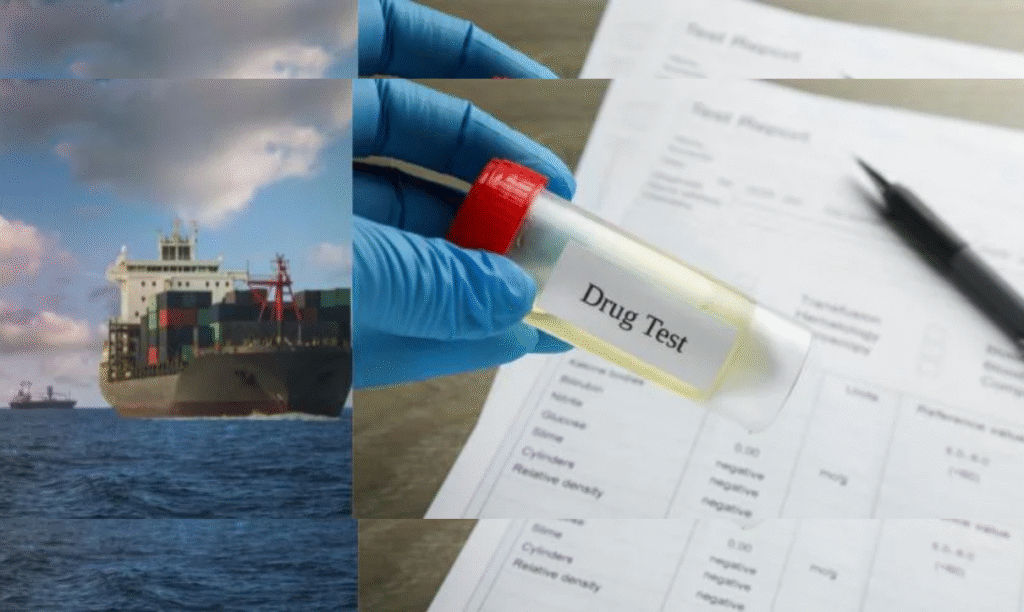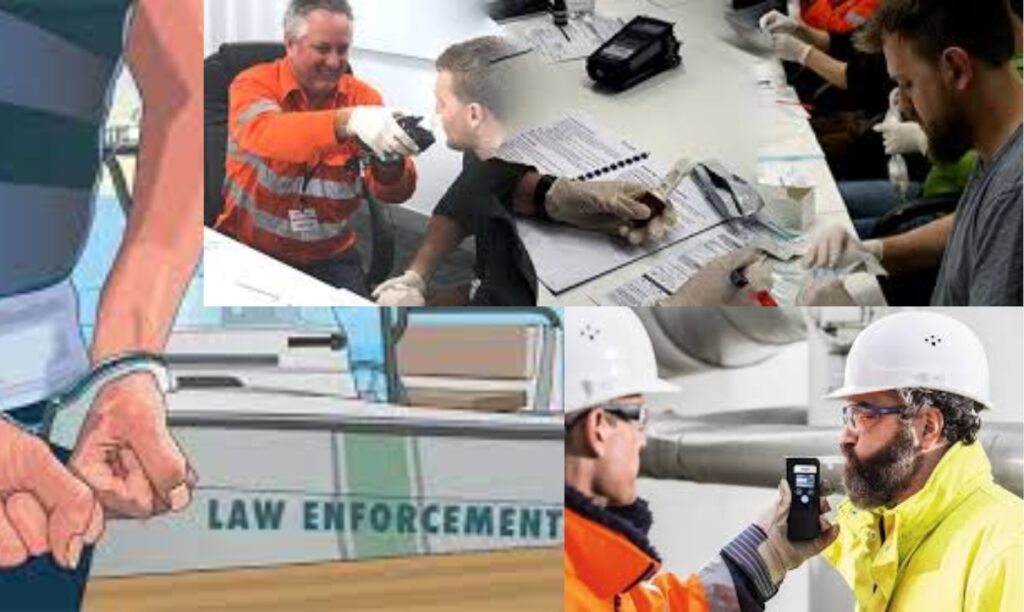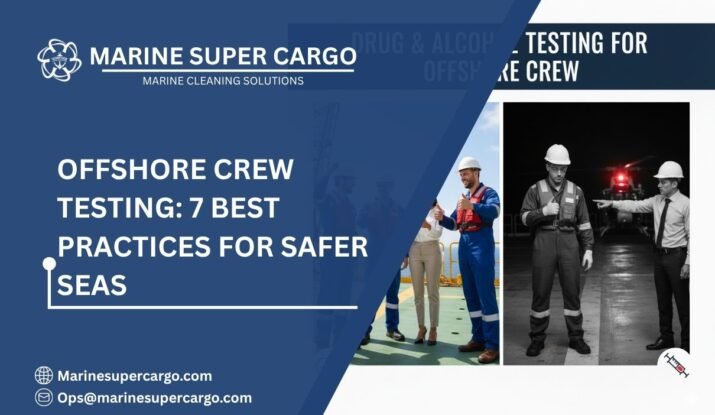Drug & Alcohol Testing for Offshore Crew: Best Practices
Life at sea is both demanding and rewarding, but it requires vigilance like few other professions. Offshore crew work under high pressure, long shifts, and in conditions where even the smallest lapse can endanger lives, cargo, and vessels. This is where Offshore Crew Testing—specifically drug and alcohol testing—becomes not just a compliance requirement but a lifeline for safety and efficiency. In this article, we’ll uncover practical best practices, global standards, and industry insights that help keep crews safe and operations seamless.
The Vital Role of Offshore Crew Testing
Imagine steering a massive vessel where even a second of reduced focus could mean a collision. Offshore Crew Testing ensures that crew members are fit for duty, free from the influence of intoxicants that impair judgment. This testing directly reduces risks of accidents, equipment failures, and environmental disasters. For ship owners and managers, it’s a critical safeguard—not only for human lives but also for reputation and regulatory compliance under frameworks such as the IMO and MARPOL.
Why Drug & Alcohol Testing Matters at Sea
At sea, decisions are often made in split seconds. Impairment from drugs or alcohol contributes to slower reactions, clouded judgment, and higher incident rates. Offshore Crew Testing acts like a safety net, preventing high-liability scenarios. Beyond compliance, testing helps build a culture of trust and accountability on the board. Crew members know they are working alongside sober colleagues, which boosts morale and operational effectiveness.

Industry Standards and Regulatory Frameworks
Global maritime authorities have set clear rules. The International Maritime Organization (IMO) mandates strict safety frameworks for seafarers, while the MARPOL Convention emphasizes the prevention of marine pollution resulting from negligent human activities. Organizations such as the International Marine Contractors Association (IMCA) provide safety management guidelines that include comprehensive drug and alcohol testing protocols. Offshore Crew Testing aligns ships with these international benchmarks, ensuring they pass inspections, audits, and avoid costly penalties.
Types of Offshore Crew Testing Methods
Different situations demand different testing methods:
- Pre-employment screening: Conducted before boarding to ensure readiness.
- Random testing: Unannounced checks that deter risky behaviors.
- Post-incident testing: Critical after accidents or near-miss events.
- Scheduled testing: Regular and systematic checks to establish compliance.
- For-cause testing: Triggered when crew behavior raises concern.
Each method strengthens organizational trust and reflects a proactive approach to maritime risk management.
Challenges Faced in Offshore Crew Testing
Conducting tests offshore isn’t always straightforward. Harsh weather, remote operations, and limited medical facilities can delay or complicate tests. Crews might also harbor stigma or fear surrounding testing. Ship managers need robust systems to ensure fairness, confidentiality, and efficiency. This means relying on portable kits, training onboard officers, and partnering with professional maritime testing organizations. Overcoming these challenges makes Offshore Crew Testing practical, credible, and sustainable. Also read about Ensuring safer seas with 0 risks through cargo safety testing.
Best Practices for Effective Crew Testing
Certain strategies elevate testing effectiveness:
- Enforce a zero-tolerance policy and communicate it clearly.
- Train supervisors to spot impairment early.
- Use certified medical-grade testing kits and procedures.
- Keep records for audits and compliance reviews.
- Protect privacy to encourage honest participation.
These practices transform Offshore Crew Testing from a regulatory checkbox into a powerful culture of safety. Learn more about Employee Alcohol Testing.
The Cost of Neglecting Crew Testing
Skipping or minimizing safety testing comes at a steep price. Beyond fines and detentions, untreated impairment can cause accidents, cargo losses, and environmental disasters. Consider the ripple effect—a single incident could shutter operations, damage ecosystems, and escalate insurance premiums. Offshore Crew Testing, in contrast, is a modest investment that mitigates far greater financial and reputational risks.
Crew Welfare and Human Factors
Testing isn’t just about catching risks; it’s about safeguarding crew welfare. Addiction issues need sensitive management and support rather than punishment alone. By embedding Offshore Crew Testing into broader wellness programs, ships foster healthier workplaces. When seafarers feel valued and safe, productivity and retention rise. Offshore environments can then shift from being high-risk to being high-trust. Learn more about the Importance of Drug Testing at Work.
Future Trends in Offshore Crew Testing
Technology is reshaping the landscape. Portable digital devices, biometric sensors, and AI-driven data analytics are expected to revolutionize Offshore Crew Testing. Future practices may include real-time impairment monitoring (instead of just drug detection), predictive health assessments, and integration with fleet safety management systems. These innovations support proactive risk prevention and elevate compliance strategies.
✅ 4 Things to Check for Safety at Sea pic.twitter.com/dAxhJQ2i6U
— Marine Super Cargo (@Marinsupercargo) September 14, 2025
Marine Supercargo Expands Services: Drug & Alcohol Testing for Safer Seas
Marine Supercargo, already known for its global marine cleaning platform, has broadened its services to support safer shipping operations. The company now provides professional Drug & Alcohol Testing solutions tailored for offshore environments. This new service helps ship owners, operators, and managers uphold international compliance standards while protecting crew welfare.
By integrating Offshore Crew Testing with cleaning and maintenance programs, Marine Supercargo is offering a holistic approach to vessel safety. This step also supports regulations under IMO, IMCA, and MARPOL by ensuring seafarers remain fit for duty. For shipping stakeholders, the message is clear—safety and efficiency are inseparable, and testing is central to delivering both.

Integrating Testing With Vessel Cleaning Practices
Interestingly, Offshore Crew Testing aligns with the same goals as underwater hull cleaning and maintenance—minimizing risks, complying with global environmental laws, and achieving cost efficiencies. Just as hull cleaning reduces drag and saves fuel, testing ensures a crew is fit to maximize vessel performance. Both measures prevent costly delays, strengthen compliance records, and support a shipping industry moving toward greener, safer operations.
Conclusion
Drug and alcohol testing for offshore crews is more than a rule—it’s a shield against accidents, financial losses, and reputational harm. The three key takeaways are:
- Offshore Crew Testing reinforces international safety and compliance standards.
- Testing safeguards crews, protects the environment, and ensures operational efficiency.
- Integrated approaches, like Marine Supercargo’s services, reflect the future of smarter, safer shipping.
To stay proactive and responsible in maritime operations, explore specialized solutions at CleanShip.co, where compliance meets efficiency.
FAQs:
Q1. Why is Offshore Crew Testing important for shipowners?
It ensures crew fitness, prevents accidents, and guarantees compliance with international maritime safety regulations, minimizing financial and legal risks.
Q2. When should Offshore Crew Testing be conducted?
Testing should be done pre-employment, randomly during operations, post-incident, and whenever an officer’s suspicion suggests impairment.
Q3. How does drug & alcohol testing support vessel cleaning operations?
Both processes minimize operational risks. While hull cleaning improves vessel efficiency, testing ensures crew readiness to operate safely and effectively.
Q4. Does Offshore Crew Testing affect crew morale?
Yes—positively, when done fairly and confidentially. It reassures crews that safety is valued, fostering trust and confidence onboard.
Q5. What innovations are shaping the future of crew testing?
Digital devices, biometric monitoring, and AI-driven predictive assessments are emerging trends revolutionizing Offshore Crew Testing.


